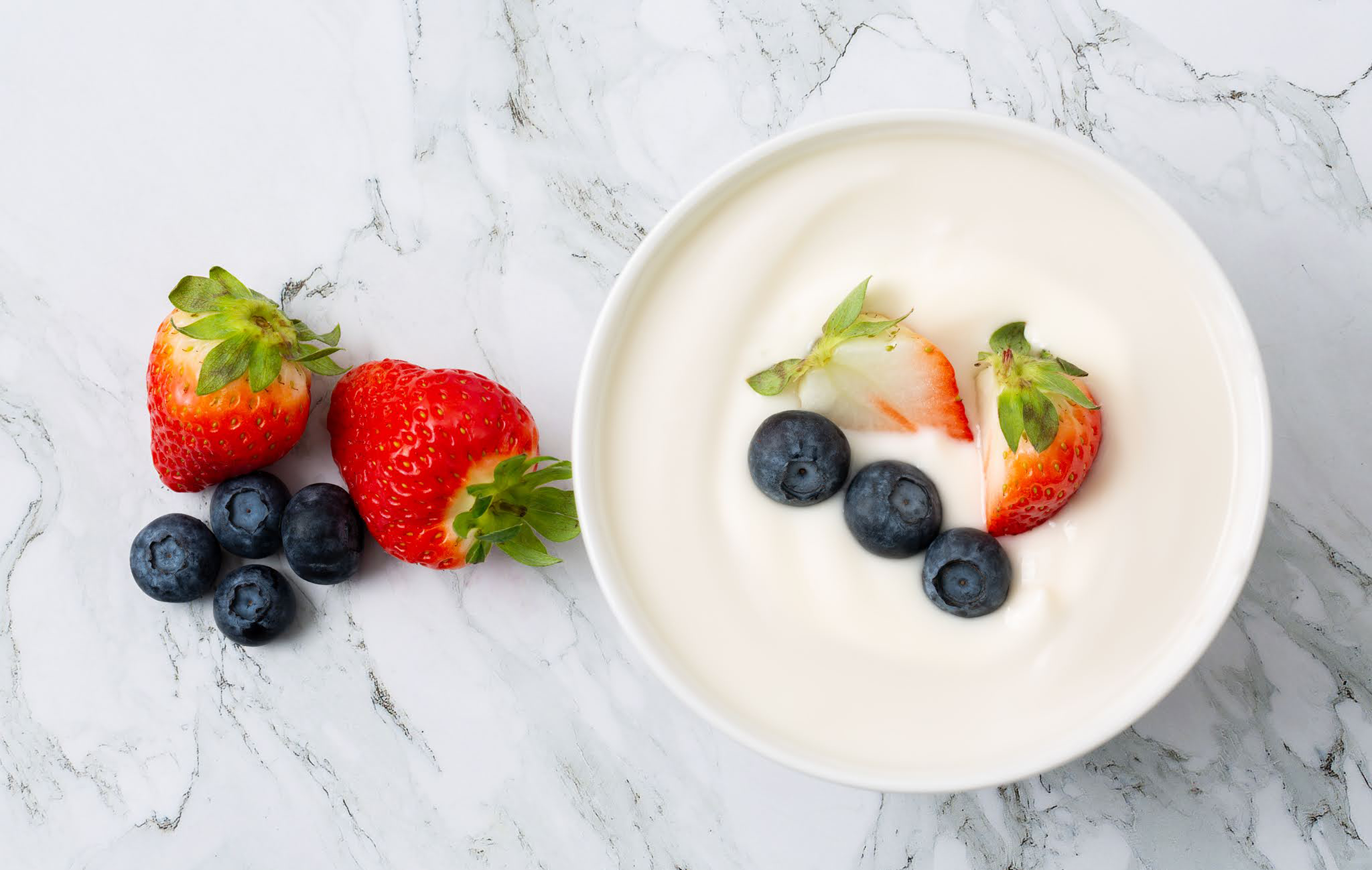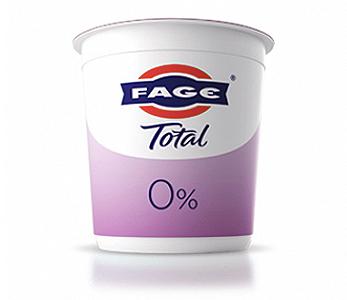Is Greek yogurt good for you? What nutritionists want you to know


Parenting advice, hot topics, best buys and family finance tips delivered straight to your inbox.
You are now subscribed
Your newsletter sign-up was successful
Whether you’re stirring it into a sauce or serving it with fruit for breakfast - it’s safe to say that greek yogurt has found a place in almost every modern family’s fridge. But is greek yogurt good for you?
With so many low fat and low sugar options on the market it's often hard to know what's the healthiest yoghurt to buy in the supermarket. Different from traditional natural yogurt, greek yogurt is strained during production to remove the liquid whey, giving it a thicker consistency and a rich, velvety texture which has earned itself a legion of fans. But how healthy is it in reality?
Is greek yogurt good for you?
In a nutshell - yes, greek yogurt is good for you. This is because it boasts many benefits for your body, brain and overall health. “It provides an excellent source of protein and high fibre carbohydrates,” says Mina Khan, who has been providing nutritional advice for over 25 years. “It contains a great mix of vital minerals and vitamins, such as potassium, calcium, zinc and vitamin B12.”
Foods with calcium and high protein content are good for maintaining muscle mass and improving bone health. This can help to reduce the risk of developing degenerative bone diseases like Osteoporosis. Protein is additionally important for your immune system and nerves, and is a key provider of energy.
Greek yoghurt is a great source of protein for vegetarians because it also contains the vitamin B12. Naturally occurring in animal products, vitamin B12 is essential for red blood cell formation and good brain function. A typical serving of greek yoghurt contributes to just over 20 percent of your recommended daily B12 intake.
“It’s also packed full of probiotics (known as ‘good bacteria’) which helps aid digestion and keep our bowels healthy,” adds Mina. “It has also been shown to reduce gas, bloating, constipation and other common problems with the gut, so if you suffer from Irritable Bowel Syndrome (IBS) I’d definitely recommend trying to incorporate greek yogurt into your diet.”
Its probiotic properties equally aid your immune system to protect you against viruses and bacterial infections, whilst a recent study published in the British Medical Journal found that probiotics helped reduce depression and anxiety.
Which greek yogurt brands are healthy?
Registered dietitian Jasmine Carbon told GoodToKnow that both the brand and the ingredients are important factors to consider when choosing a 'healthy' yogurt.
Parenting advice, hot topics, best buys and family finance tips delivered straight to your inbox.
"Whether it’s Yeo Valley, FAGE, Dannon or supermarket-own-brand, there are marginal differences between various brands of greek yogurt. Taking note of the fat and added sugar content is important," she says. "For example, flavoured greek style yogurts will have added sugars and this will increase its calorie content. Greek yogurts are available in varying levels of fat content: ‘low fat’, ‘no fat’ ‘5%’ fat and so on. Choose the yogurt which best suits your health goals and taste preferences."
As well as Yeo Valley, FAGE and Dannon, Rachel’s Organic is another brand known for their healthy greek style natural yogurt. Their Rachel's Organic Greek Style Natural Fat Free yogurt satisfies taste buds and features a lower sugar content.
What is the best greek yogurt?
Mina Khan makes a case for FAGE whose low fat product also contains less sugar. “The best low fat greek yogurt option is one that’s also low in sugar. A typical adult should limit their sugar intake to no more than approximately 30g a day, and as you’ll see, brands such as FAGE’s fat free greek yogurt contains just 3g of sugar per serving - making this a great choice for those wanting to watch their weight.”
Keeping an eye on the amount of sugar you eat is really recommended. Too much leads to weight gain whilst too little affects your blood sugar levels causing you to feel unwell.
Nutraceutical expert Mina recommends keeping it simple when choosing your yogurt. “If you’re wanting to limit your sugar intake, I’d recommend opting for an unflavoured, natural version,” she says. “You can always sweeten it yourself with a little honey or by adding raspberries or blueberries, which makes a really delicious snack.”
Mina’s low sugar greek yogurt of choice is FAGE - particularly FAGE’s Total 0% Fat Greek Yogurt. Although advertised as low fat, this product has no added sugar, only containing the natural sugar found in the milk. With three grams of sugar in every 100 gram serving, this rivals most healthy greek yogurts available.

Credit: FAGE
Nutritional information:
- Cal: 54 kCal per 100g serving
- Fat: 0g
- Sat Fat: 0g
- Sugar: 3g
- Salt: 0.10g
Is greek yogurt good for weight loss and why?
Greek yogurt has many qualities which makes it good for weight loss, as Jasmine Carbon explains. "It’s a great source of protein - providing about 14g of protein per 150g serving (that’s the size of an average yogurt pot). This is about 40% more protein than in a serving of plain natural yoghurt," she says.
"We know that taking in adequate amounts of protein spaced out across the day can help to make you feel fuller and reduce hunger cravings. If you have less hunger cravings, there is less chance of you reaching for highly refined sugar and/or high fat convenience snacks.
"Greek yogurt can also be used as a lower calorie, lower fat substitute in cooking," adds Jasmine. "Use it instead of sour cream on chilli or in place of cream topped on soups."
Iodine is another mineral found in greek yogurt which is essential for thyroid health and establishing a healthy metabolism. Increasing your iodine intake ups your thyroid activity and metabolic rate - causing you to burn more calories and lose weight.

Mina Khan is a nutritionist, and qualified pharmacist. She spent 25 years working as a pharmacist before moving into the health food and nutraceuticals industry. Having been brought up with Ayurvedic Medicine, she believes passionately in the use of natural ingredients to help prevent and manage a range of health conditions. She gained her Bachelor of Science (BSc) Pharmacy at the University of Sutherland - and went on to found the nutraceuticals brand, Formulate Health.

Emily Stedman is the former Features Editor for GoodTo covering all things TV, entertainment, royal, lifestyle, health and wellbeing. Boasting an encyclopaedic knowledge on all things TV, celebrity and royals, career highlights include working at HELLO! Magazine and as a royal researcher to Diana biographer Andrew Morton on his book Meghan: A Hollywood Princess. In her spare time, Emily can be found eating her way around London, swimming at her local Lido or curled up on the sofa binging the next best Netflix show.